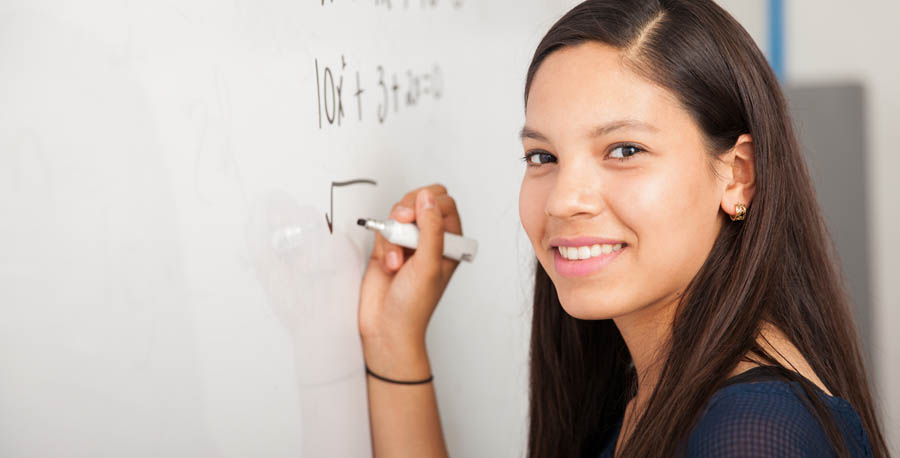-
15 March 2016
-
0 comments

Senior Maths Subjects Explanation – as briefly as possible
2020 Update: With the transition from OP to ATAR, the names and structure of Queensland senior maths subjects changed. The below information is still generally applicable if you change the subject names:
Maths A – General Mathematics
Maths B – Mathematical Methods
Maths C – Specialist MathematicsHERE is our equivalent post about the NEW senior maths subjects
In Year 10, students select from three mathematics ‘Authority’ subjects (Mathematics A, Mathematics B and Mathematics C) to study in Years 11 and 12. Authority subjects count towards Overall Position (OP score, replaced by Australian Tertiary Admission Rank from 2018) for university admission straight from school.
The ELC process prioritises the core topics which every student will cover. When students begin a new school year, we then use curriculum planner sheets from schools to prioritise other topics as needed. In this way ELC students can stay ahead of their class.
Choosing which maths
Our default expectation is for students to aim for Maths B. Read why here. For now though, some main points:
Students decide senior subjects midway though Year 10.
Maths A is the least taxing. Maths C must be studied alongside Maths B, which increases the maths workload.
It is possible to switch to an easier maths subject in Year 11 if the student finds that they really aren’t coping with the one/s they chose.
One big factor is puberty, the brain disruption and distractions that come with it. This comes at different times and with varying effects for each student. (It is particularly ill-timed for boys.) But all students will cope much better if they know what to expect, have learnt ahead, and have set in place the right habits before their brain goes AWOL.
If Maths B will likely be a prerequisite for their desired degree, we usually recommend doing it at school. But worth keeping in mind is that universities do provide bridging courses (like this one at QUT for example) for those who did not complete Maths B at school but who will need it for university. At school the pace is slower and there is more support. The summer bridging courses are intensive. But once students come out the other side of puberty and can think straight again, they are often better able to handle it.
Quick summary
The contents of the three maths differ in purpose, and they increase in complexity from A to C:
Maths A
More ‘concrete’ than the others covering length, area, shape, data, direction, distance utilising Pythagoras and trigonometry; it focuses more on skills for life and the technical trades, for example, tool-making, sheet-metal working, fitting and turning, carpentry and plumbing, auto mechanics, as well as, tourism and hospitality, and administrative and managerial employment.
Students find the content on home loans, car loans, credit cards, budget planning useful in their personal lives. The extension of geometry, statistics and probability are useful for trade, business and managerial careers.
Subject Guide for students and parents
Maths B
Mostly abstract in content, based on algebra in the main. From early on, we encourage our ELC students to aim to study Maths B as it is recommended for direct career pathways in engineering, business, science, medicine, mining, information technology, mathematics, finance and economics. The content involves making and applying mathematical models in real-world situations and in purely mathematical contexts, deducing properties and communicating results.
Success in Maths B demonstrates a higher level of abstract thinking, problem solving and process application.
Some university courses require Maths B or equivalent as a prerequisite for entry to these courses, while for others it is very helpful for understanding course content but not mandatory for entry. Successful Maths B students will find intro-level university maths courses quite stress-free.
Subject Guide for students and parents
Maths C
Maths B students can choose to study Maths C as well, to extend their advanced maths skills to cover more specialised concepts – engineering and science related. Maths C is recommended for students planning to undertake further study in mathematics – or those who have a strong interest or aptitude in maths.
Maths C students will find many university maths and science courses much easier than other students. In some cases, very successful Maths C students may negotiate with their university to skip the intro-level maths courses.
Subject Guide for students and parents
Also known as
Senior maths subject names differ between states, but since 2014 Queensland has been implementing the Australian Curriculum standards so the content is fairly similar:
| QLD | NSW | Vic | More states |
| Mathematics A | General Mathematics
Maths in Society Maths in Practice |
Further Mathematics | |
| Mathematics B | Mathematics | Mathematical Methods | List of equivalents |
| Mathematics C | Mathematics Extension | Specialist Mathematics | List of equivalents |
Call us to discuss the path to successful senior maths for your child: 5478 1172
Share Social






















